








Align Adolescent Recovery for Boys
Verified Center
This provider's information has been quality-checked by Recovery.com's Research Team for accuracy and completeness, including center verification through appropriate third-party organizations.
Treatment Focus
This center treats substance use disorders and mental health conditions. You'll receive individualized care catered to your unique situation and diagnosis, learn practical skills for recovery, and make new connections in a restorative environment.
Primary Level of Care
Offering intensive care with 24/7 monitoring, residential treatment is typically 30 days and can cover multiple levels of care. Length can range from 14 to 90 days typically.
Treatment Focus
This center treats substance use disorders and mental health conditions. You'll receive individualized care catered to your unique situation and diagnosis, learn practical skills for recovery, and make new connections in a restorative environment.
Primary Level of Care
Offering intensive care with 24/7 monitoring, residential treatment is typically 30 days and can cover multiple levels of care. Length can range from 14 to 90 days typically.
Provider's Policy
Although we are out-of-network with all insurance carriers, many families receive significant reimbursement for services when coverage is confirmed and medical necessity is documented. Our admissions team will contact your insurance provider, confirm your out-of-network benefits, and provide you with a breakdown of your potential coverage. All at no cost to you.
Align Adolescent Recovery for Boys
Align Adolescent Recovery for Boys
About Align Adolescent Recovery for Boys
Align helps teenage boys in grades 9-12 who are navigating trauma, depression, anxiety, ADHD, executive functioning challenges, substance use addiction, difficulty with traditional school settings, and family conflict or behavioral issues. This dual-diagnosis residential program doubles as an accredited recovery high-school—so clinical healing and academic progress happen together. Their campus is a setting where bright, stuck teens rebuild confidence, catch up in school, and start to breathe again.
Unlock Full Potential
At Align Adolescent Recovery, treatment is a steady, relational path that meets each student where he is and helps him grow in every direction. Recovery is the foundation, and from there they build holistically with evidence-based therapy, 12-Step support, and experiential learning. They provide education with an on-site high school, turning feelings of stress around academics into self-confidence. They treat every student as capable—because he is—and they unlock that potential with clear expectations and patience. Families are involved too, repairing trust so change can happen at home.
Find Adventure on the Ranch
On a 100-acre ranch just outside Tucson, Align’s campus is set beneath wide skies, with horse trails winding through it. Daily life at treatment blends wellness and real-world challenges: cold plunge and sauna sessions paired with dialectical behavior therapy (DBT) meditation to calm the nervous system; then sports, a fully-equipped fitness center, and time on the skate park, batting cages, soccer, and volleyball courts. Adventure abounds here—with paintball on-campus, rock climbing, and hiking—so teens practice resilience while they heal. The facility also offers a fully equipped music room, recording studio and art room - allowing creativity to flourish. The shared living space feels homey and has an intimate, family feel.
Launch a Smooth Transition Plan
Aftercare at Align is about making life post-treatment feel doable and hopeful. Long before graduation, the family unit starts building a step-down plan that fits real life. When it’s time to launch, Align helps students choose the right next step—whether it’s heading home with a clear structure, continuing in their transitional living partner Pivot, or layering in outpatient care. The team coordinates the handoffs, so everyone leaves with a concrete roadmap and people who already know the student.

Highlights from the Center
Highlights
These highlights are provided by and paid for by the center.
Therapeutic Location
Customized Treatment Plans
Wellness Emphasis
Adolescents
Center Overview
Treatment Focus
This center treats substance use disorders and mental health conditions. You'll receive individualized care catered to your unique situation and diagnosis, learn practical skills for recovery, and make new connections in a restorative environment.
Joint Commission Accredited
The Joint Commission accreditation is a voluntary, objective process that evaluates and accredits healthcare organizations (like treatment centers) based on performance standards designed to improve quality and safety for patients. To be accredited means the treatment center has been found to meet the Commission's standards for quality and safety in patient care.

Align Adolescent Recovery for Boys
Insurance Accepted
Cash Pay Rates
Estimated Cash Pay Rate
Center pricing can vary based on program and length of stay. Contact the center for more information. Recovery.com strives for price transparency so you can make an informed decision.


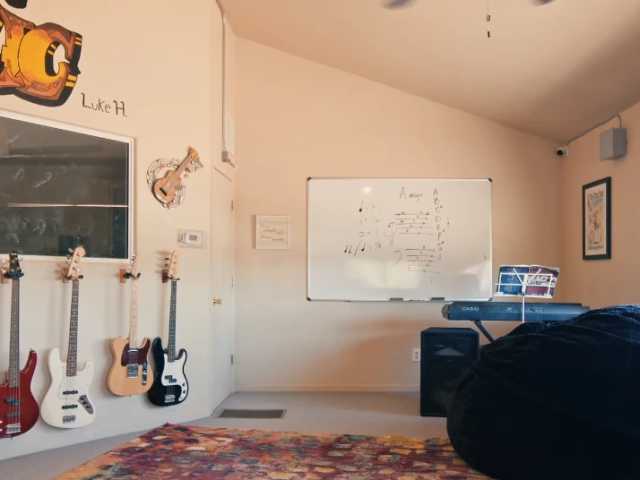

Recovery.com Verified Listing
Recovery.com verified that the name, location, contact information and license to operate for this treatment provider are valid and up-to-date.
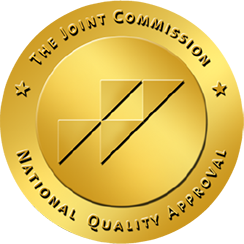
Joint Commission Accredited

Licensed by Arizona DHS
Recovery.com is an independent, third-party mental health resource. Verification does not imply endorsement and does not guarantee the quality of treatment services.
Meet Your Care Team

Patrick Barrasso
CEO/Co-Founder
LCSW

Betsy Barrasso
Co-Founder
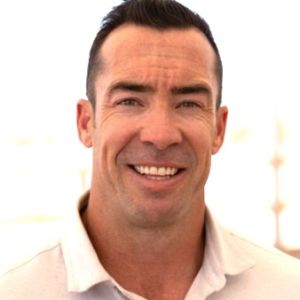
Tony Barrasso
Chief Operating Officer
MPA, LMS, MA

Tiffany Barrasso-Gallego
Academy Admissions Director, Clinical Director
LCSW
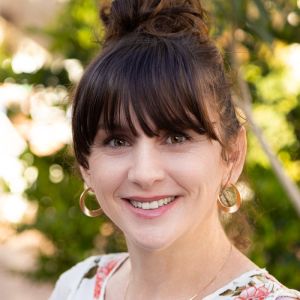
Sarah Mota
Medical Director
DNP

Tommy Wiertel
Equine Instructor

Luke Hamilton
Psychiatric Nurse Practitioner
DNP, PMHNP-BC

Kayla Sloan
Primary Therapist
LMSW, LASAC

Kala Phelps
Academics Director
M.Ed.

Stephanie Thomas
Special Education & English Teacher
MS

Peter Doyle
Program Director
MS, LASAC
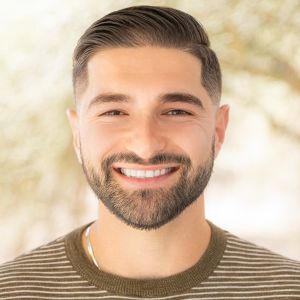
Ather Dawood
Primary Therapist
LAC

Nathalie Oliver
Equine Facilitator
BS
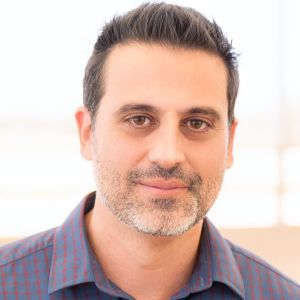
Thomas Vincent
Therapist
LMSW

Sally Pilz
Operations Director
Your Care Options
Specializations
Adolescents
Teens receive the treatment they need for mental health disorders and addiction, with the added support of educational and vocational services.
Who We Treat
Adolescents
Teens receive the treatment they need for mental health disorders and addiction, with the added support of educational and vocational services.
Treatment Services
Day Treatment
In a PHP, patients live at home but follow an intensive schedule of treatment. Most programs require you to be on-site for about 40 hours per week.
Intensive Outpatient Program
In an IOP, patients live at home or a sober living, but attend treatment typically 9-15 hours a week. Most programs include talk therapy, support groups, and other methods.
Outpatient
During outpatient rehab, patients attend a structured treatment program while continuing to live at home.
Residential
In a residential rehab program, patients live onsite, with access to daily treatment and 24-hour care. An average stay is 30-90 days.
Approaches
Evidence-Based
A combination of scientifically rooted therapies and treatments make up evidence-based care, defined by their measured and proven results.
Family Involvement
Providers involve family in the treatment of their loved one through family therapy, visits, or both–because addiction is a family disease.
Holistic
A non-medicinal, wellness-focused approach that aims to align the mind, body, and spirit for deep and lasting healing.
Twelve Step
Incorporating spirituality, community, and responsibility, 12-Step philosophies prioritize the guidance of a Higher Power and a continuation of 12-Step practices.
Therapies
1-on-1 Counseling
Patient and therapist meet 1-on-1 to work through difficult emotions and behavioral challenges in a personal, private setting.
Meditation & Mindfulness
A practiced state of mind that brings patients to the present. It allows them to become fully aware of themselves, their feelings, and the present moment.
Trauma-Specific Therapy
This form of talk therapy addresses any childhood trauma at the root of a patient's current diagnosis.
Adventure Therapy
This experiential approach uses the physical and emotional challenges of outdoor activities as tools for personal growth.
Art Therapy
Visual art invites patients to examine the emotions within their work, focusing on the process of creativity and its gentle therapeutic power.
Equine Therapy
Guided interactions with trained horses, their handler, and a therapist can help patients improve their self-esteem, trust, empathy, and social skills.
Experiential Therapy
With this approach, patients heal by doing. Therapists help patients process difficult emotions to speak, using guided activities like art or dance.
Conditions We Treat
Grief and Loss
Grief is a natural reaction to loss, but severe grief can interfere with your ability to function. You can get treatment for this condition.
ADHD, ADD
ADHD is a common mental health condition caused by dopamine imbalance. Common symptoms include inattention, hyperactivitiy, and impulsivity.
Anger
Although anger itself isn't a disorder, it can get out of hand. If this feeling interferes with your relationships and daily functioning, treatment can help.
Anxiety
Anxiety is a common mental health condition that can include excessive worry, panic attacks, physical tension, and increased blood pressure.
Codependency
Codependency is a pattern of emotional dependence and controlling behavior. It's most common among people with addicted loved ones.
Depression
Symptoms of depression may include fatigue, a sense of numbness, and loss of interest in activities. This condition can range from mild to severe.
Gaming
Compulsive gaming is most often a problem for children and teens. The disorder can affect physical health, sleep, and the ability to focus at school.
Internet Addiction
Internet addiction is common among children teens. This compulsive disorder can damage relationships, school performance, sleep habits, and physical health.
Substances We Treat
Alcohol
Using alcohol as a coping mechanism, or drinking excessively throughout the week, signals an alcohol use disorder.
Chronic Relapse
Consistent relapse occurs repeatedly, after partial recovery from addiction. This condition requires long-term treatment.
Co-Occurring Disorders
A person with multiple mental health diagnoses, such as addiction and depression, has co-occurring disorders also called dual diagnosis.
Drug Addiction
Drug addiction is the excessive and repetitive use of substances, despite harmful consequences to a person's life, health, and relationships.
Languages
Care Designed for Your Needs
Personal Amenities
Amenities
Special Considerations
Healthy Meals are provided
Great food meets great treatment, with providers serving healthy meals to restore nutrition, wellbeing, and health.
Activities
Yoga
Yoga is both a physical and spiritual practice. It includes a flow of movement, breathing techniques, and meditation.
Off-Site Activities
Off-Site Amenities
Smoking and Vaping Policy
Learn More About the Center
Education for Teens in Recovery
Discover how Align’s accredited recovery high school weaves therapy, academics, and apprenticeships together.
Choose the Right Level of Care
Read this fast, parent-friendly guide that shows how to pick the right level of care now.
Frequently Asked Questions
Get straight answers about Align’s residential program so parents can decide with confidence.
Teen Treatment Insurance Verification
See what insurance could cover for teen treatment using Align’s quick verification form.





